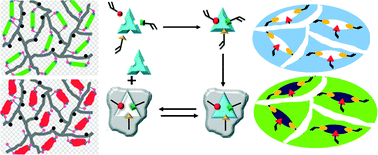Recent advances in molecular imprinting technology: current status, challenges and highlighted applications
Abstract
Molecular imprinting technology (MIT) concerns formation of selective sites in a

* Corresponding authors
a
Key Laboratory of Coastal Environmental Processes, Yantai Institute of Coastal Zone Research, Chinese Academy of Sciences, Yantai 264003, China
E-mail:
lxchen@yic.ac.cn
Fax: +86-535-2109130
Tel: +86-535-2109130
b Graduate University of Chinese Academy of Sciences, Beijing 100049, China
Molecular imprinting technology (MIT) concerns formation of selective sites in a

 Please wait while we load your content...
Something went wrong. Try again?
Please wait while we load your content...
Something went wrong. Try again?
L. Chen, S. Xu and J. Li, Chem. Soc. Rev., 2011, 40, 2922 DOI: 10.1039/C0CS00084A
To request permission to reproduce material from this article, please go to the Copyright Clearance Center request page.
If you are an author contributing to an RSC publication, you do not need to request permission provided correct acknowledgement is given.
If you are the author of this article, you do not need to request permission to reproduce figures and diagrams provided correct acknowledgement is given. If you want to reproduce the whole article in a third-party publication (excluding your thesis/dissertation for which permission is not required) please go to the Copyright Clearance Center request page.
Read more about how to correctly acknowledge RSC content.
 Fetching data from CrossRef.
Fetching data from CrossRef.
This may take some time to load.
Loading related content
